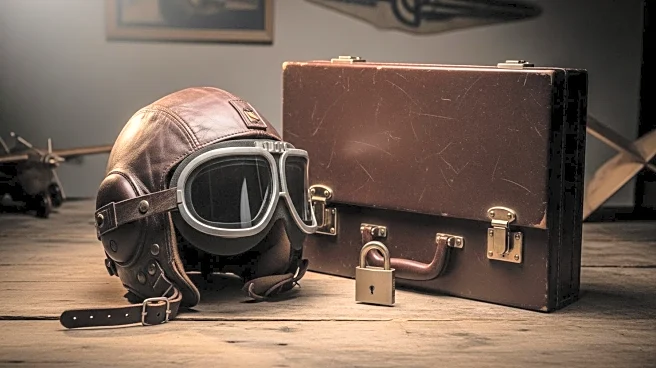What is the story about?
What's Happening?
President Trump announced the declassification and release of all government records related to Amelia Earhart, the aviation pioneer who disappeared nearly 90 years ago. Earhart vanished on July 2, 1937, during an attempt to fly around the world with her navigator, Fred Noonan. Her Lockheed 10-E Electra plane is believed to have crashed in the South Pacific near Howland Island due to fuel exhaustion. Despite extensive searches by the US Navy and Coast Guard, no trace of Earhart or her plane was found, leading to her being declared legally dead in 1939. The announcement by President Trump aims to shed light on Earhart's final flight and address longstanding conspiracy theories about her disappearance.
Why It's Important?
The declassification of Amelia Earhart's files could provide new insights into one of aviation history's most enduring mysteries. Earhart's disappearance has captivated the public for decades, with various theories suggesting she was captured by Japanese troops or survived on a deserted island. The release of these records may clarify the circumstances surrounding her final flight and potentially debunk or confirm existing theories. This move by President Trump may also influence public interest in historical aviation events and contribute to ongoing discussions about government transparency in historical cases.
What's Next?
Following the declassification, historians, researchers, and aviation enthusiasts are likely to analyze the released documents to uncover new information about Earhart's disappearance. The findings could lead to renewed investigations or documentaries exploring her life and final journey. Additionally, the release may prompt discussions on the preservation and accessibility of historical records, influencing future decisions on similar cases.
Beyond the Headlines
The declassification of Earhart's files highlights the cultural fascination with historical figures and the mysteries surrounding them. It raises questions about the role of government in preserving and releasing historical information, as well as the ethical considerations in handling sensitive historical data. The event may also inspire renewed interest in women's contributions to aviation and their historical impact.















